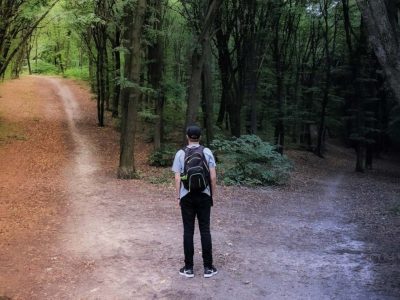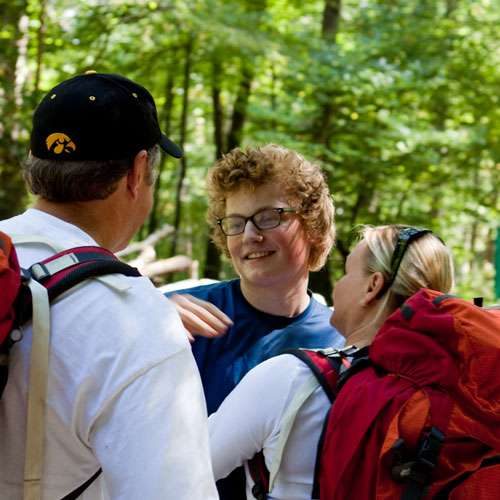
Photo Credit: flickr user – Matthias Ripp
Experiences in nature decrease negative thoughts
In a study published in Proceedings of the National Academy of Sciences, researchers led by Gregory Bratman from Stanford University found a link between positive thinking and nature. It only took a 90-minute stroll through some greenery to elicit a change in the way people were thinking.
Those who walked through the wilderness tended to focus less on negatives and had less brain activity in areas associated with the development of mental illness. The study emphasizes the need for natural surroundings to keep mental health. This is why wilderness therapy is so effective.
Wilderness therapy defined
In today’s society, young people are more prone to developing issues because of various factors, such as an increase in single-parent families; the media promoting sex and violence; and less structured homes where parents are both working more often. Because of this, more comprehensive therapy programs have developed to help these adolescents, such as Wilderness Therapy.
Wilderness therapy is often used within programs that use it along with other therapies to conduct assessments, interventions, and treatments of problem behaviors. This type of therapy is usually for adolescents struggling with issues, such as depression, anxiety, family conflict, and more. By removing the daily distractions of phones, electronics, etc., teens are able to focus in on their issues to change them. Wilderness therapy programs use activities such as backpacking, rafting, mountain biking, and more to increase self-esteem, responsibility, and personal growth.
Finding treatment
Searching for the right program that fits your struggling teen can be a lengthy process. If traditional outpatient therapies aren’t offering improvements, it may be time to look into a wilderness therapy program like Trails Carolina.
Trails Carolina is a wilderness therapy program for teens, ages 10 to 17, struggling with issues such as depression, anxiety, ADHD, and many others. We strive to create meaningful change within our students through the use of individual, group, family, equine, and wilderness therapy. We can help your family recover.
For more information about how our wilderness therapy program can help your family, contact us today at 800-975-7303.
Get started today
Contact us today to learn how Trails Carolina can help your family
Trails saved my daughter’s life. Amanda is an amazing human and a brilliant therapist. I am so grateful to her, Science Steve, and the other wonderful people who could reach my daughter at a time when I could not.
Margot Lowman August 2022
Great life changing experience for our son. After becoming addicted to gaming during covid he was very depressed. At Trails he experienced the wilderness, Science Steve, learning survival skills and top notch therapy and support etc… I highly recommend! This gave our son and our family a renewed family bond full of love and excitement about his bright future.
Winnifred Wilson July 2022
Outstanding clinical work and superb staff! There’s a great culture at this company and it shows with how they engage with families/clients.
Kristin Brace June 2022
Discover If Trails Is The Right Program For Your Child
Take our short online assessment and help us better understand how we can help your family.




